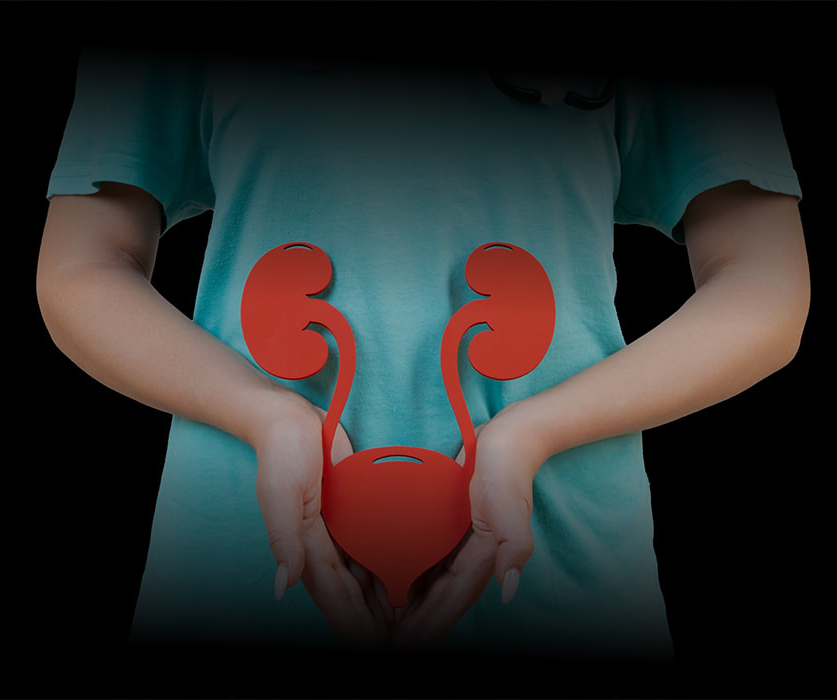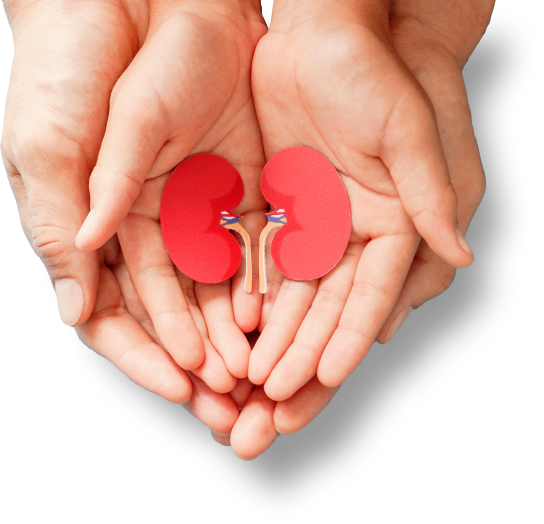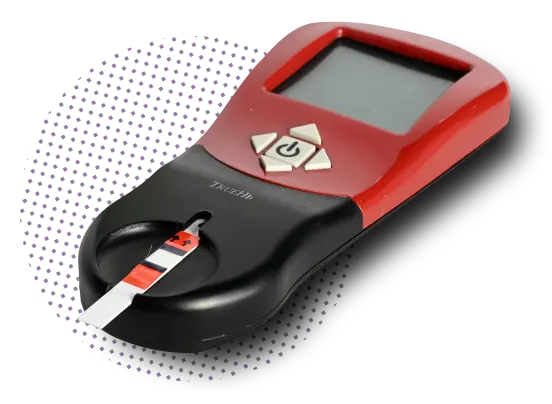Chronic Kidney Disease (CKD) is a progressive condition that affects the ability of the kidney to filter waste and excess fluids from the blood and reduces the production of red blood cells (RBC). Regular hemoglobin monitoring is necessary for the management of CKD.

Chronic Kidney Disease (CKD) is a condition where kidney does not perform its functions generally due to low levels of erythropoietin (EPO) hormone. EPO hormone is responsible for the production of red blood cells (RBC). Less RBC production leads to low hemoglobin and causes iron-deficiency anemia. In CKD patients, it is essential to maintain hemoglobin levels in between 10-12g/dL. Therapies such as erythropoiesis-stimulating agents (ESA) therapy, iron supplements and other medications are given to the patients to increase their hemoglobin levels.
These treatments have side-effects like nausea, constipation, diarrhoea, or cough that makes difficult for the patient to adhere to such treatments. Frequent monitoring of hemoglobin levels is necessary to check the adherence and efficacy of treatment therapies or if dose adjustments are required. On the other hand, low hemoglobin (<10g/dL) in blood also reduces the oxygen supply and burdens the heart to pump more blood to other parts of the body.
If the hemoglobin levels are increased (>12g/dL) in the blood, it thickens the blood which pressures the heart to work more. In both the cases, CKD patient is at risk of developing heart disease. Around 75.3% CKD patients suffer stroke or heart failure. Thus, strict monitoring and maintaining right hemoglobin levels regularly helps diagnose anemia, and derisk heart failure. TrueHb is a one-stop solution!
Chronic Kidney Disease (CKD) is caused due to prolonged diabetes and blood pressure in the patients. Once the kidney starts degrading, it reduces the ability to filter out the waste and excessive fluids, and lowers the production of red blood cells (RBC). CKD patients have low hemoglobin levels (<10g/dL) due to less production of red blood cells (RBC) and causes iron deficiency-anemia. CKD patients suffer from the anemia symptoms like fatigue, weakness, and pallor. If anemia is not detected early or these associated symptoms are ignored, it worsens the patient’s condition to stage 4 and stage 5 CKD.
In the initial stages of CKD, hemoglobin reduction may lead to dialysis and kidney transplant, which iron supplements and ESA therapy can cure. Once the kidney is damaged in the later stages of CKD, it cannot be cured back. So, monitoring hemoglobin levels regularly in initial stages of CKD, diabetes, and blood pressure patients helps in reducing the risks and complications of the disease.

Hemoglobin levels in CKD patients monitor the progression of the disease. When the kidneys do not function normally, a decrease in erythropoietin levels leads to less red blood cell production, lowering hemoglobin levels. Thus, monitoring hemoglobin trends can help you and your doctor monitor the progression and severity of the disease.
Due to low hemoglobin levels, CKD patients are more prone to developing anemia. If anemia is detected early, timely treatment and intervention can prevent the progression of CKD and reduce the risk of associated complications, such as fatigue and weakness. Therefore, regular monitoring of hemoglobin levels helps detect anemia early in CKD patients.
When anemia is diagnosed in CKD patients, doctors prescribe Erythropoiesis-Stimulating Agent (ESA) Therapy or iron supplements. In such cases, hemoglobin trends provide details about whether these treatments are effective or need adjustments. Regular monitoring and maintaining hemoglobin levels within a target range are important to avoid the risk of anemia and the side effects of these therapies.
Due to their kidneys’ abnormal functioning, CKD patients visit hospitals frequently. It is important to manage their hemoglobin levels to reduce the need for hospitalizations and emergency interventions. Regular monitoring of hemoglobin levels in CKD patients not only reduces healthcare costs but also improves their overall health.
Due to CKD, I frequently visited clinical laboratories to monitor my hemoglobin levels. TrueHb has made my life easier, as I can now check my hemoglobin levels at home. Thank You, TrueHb, for this wonderful solution.
It is very difficult for a CKD patient like me to know my diseased condition. I am relieved since I have started using TrueHb for my hemoglobin levels. I share my details with my doctor more conveniently.
My daughter is suffering from CKD with severe anemia. I used to be worried about my child’s health. TrueHb came to me as a blessing. It helps me to keep a check on the hemoglobin levels of my child to manage her CKD condition.

US Patented Technology | Instant Results | Wide range of measurement | Accuracy as per US CLIA guidelines
1. Rechargeable Battery
2. Accuracy as per USFDA CLIA guidelines
3. Wide Measurement Range 0-24 g/dl
4. Operating range 5-55°C
5. Two Years Shell Life of Strips
6. 23 Gauge lancets for accurate results
Yes, regular hemoglobin monitoring is required in CKD management to detect anemia. Anemia may increase the risk of CKD symptoms, decrease quality of life, and impact overall health.
The frequency of hemoglobin monitoring depends on the severity of CKD disease and its treatment plan. Generally, it is done weekly or fortnightly, as required.
In CKD patients, anemia can lead to fatigue, weakness, increased risk of cardiovascular complications, and impaired brain functions.
Yes, TrueHb helps you track your hemoglobin levels at home. You can easily share your data with your doctor.
TrueHb is a convenient and quick way to measure hemoglobin levels at home, reducing the need for frequent visits to medical facilities. You can check your hemoglobin before going for dialysis.
If you notice significant changes in the hemoglobin levels, you should consult your doctor immediately to initiate or adjust treatment plans, such as iron supplementation or ESA therapy, if necessary.
No interpretation is required if you monitor hemoglobin levels with TrueHb. It gives you accurate values.
Treatment options may include iron supplements, erythropoietin-stimulating agents (ESAs), dietary adjustments, and, in some cases, blood transfusions if ESA therapy doesn’t work.
Low hemoglobin levels can lead to anemia, and causes cardiovascular complications. It affects overall quality of life.
High hemoglobin levels in CKD patients can increase the risk of cardiovascular events and other complications.
It depends on your insurance plan. CKD patients should check with their insurance provider to see if the device is covered.
Recognizing symptoms is vital for addressing hemoglobin deficiency. If you've noticed any symptoms, please share your email/phone number for symptom results for a free consultation with us if you are concerned about your health.
The content and information about the patented hemoglobinometer device displayed on this website are proprietary. Any unauthorized use, copying, or disclosure of this information, without explicit permission, is strictly prohibited and may result in legal consequences.
Customer Support : 1800 309 0932
Copyright @ TrueHb All rights reserved 2024